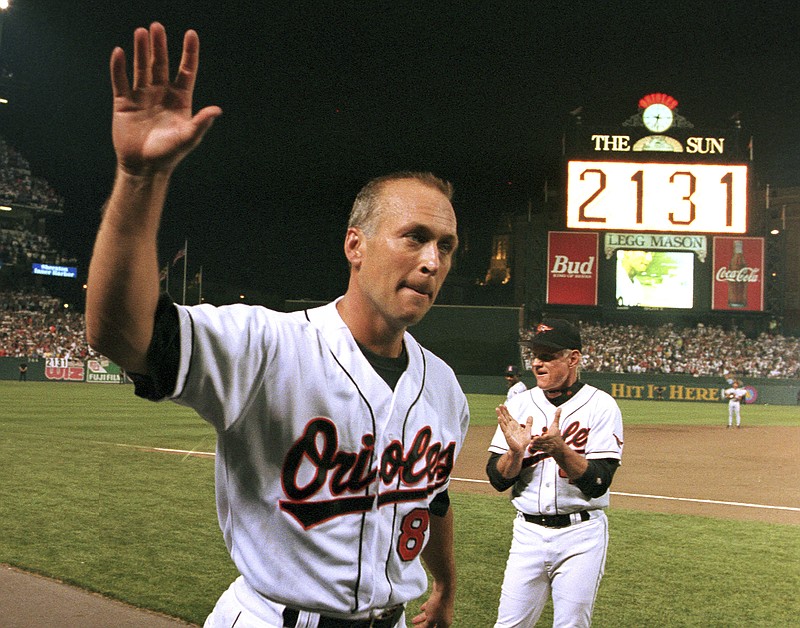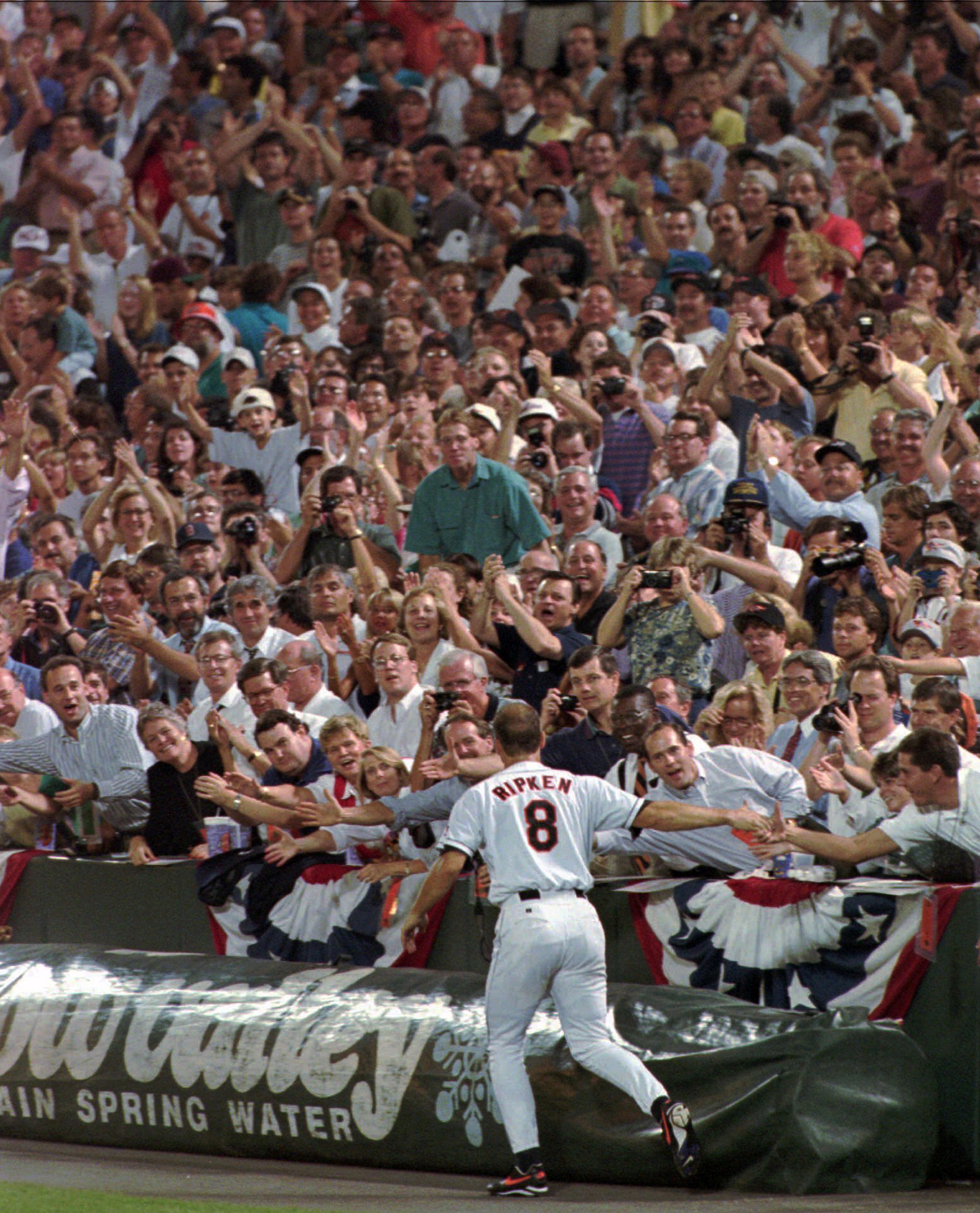It's been 25 years since Cal Ripken broke Lou Gehrig's record for consecutive games played in Major League Baseball, a feat the Baltimore Orioles star punctuated with an unforgettable lap around Camden Yards in the middle of his 2,131st successive start.
Since reaching that milestone on Sept. 6, 1995, Ripken has been inducted into the National Baseball Hall of Fame, battled prostate cancer and, just recently, celebrated his 60th birthday.
"I tell you what, in some respects it seems like it was yesterday. You can relive the moment, and everything is crystal clear," Ripken said recently. "In other ways, it seems like it's another lifetime. Twenty-five years is a long period of time. Things move on. We all move on.
No matter where he goes, Ripken usually runs into folks who claim to be part of the sellout crowd that gathered to see him break Gehrig's record of 2,130 straight games that for decades seemed unapproachable.
"People tell me all the time they were at that game," Ripken said. "It seems like there were a heck of lot more who tell me that than 40-some thousand people who were actually there."
Those in the crowd included President Bill Clinton, Vice President Al Gore and Hall of Fame players Joe DiMaggio and Frank Robinson. More important, at least as far as Ripken was concerned, his father, Cal Sr., watched the proceedings from a suite.
Cal wasted no time making eye contact with his dad after the fifth inning, when the game became official and was stopped so the baseball world could celebrate the accomplishment of the athlete known then and now as "The Iron Man."
Cal Sr. raised his son to be a ballplayer. He coached him when both were with the Orioles, then briefly managed his son in Baltimore. Having his father there was arguably the most indelible moment for the man who embodied the term "everyday player."
"My dad, I had all sorts of feelings looking up at him," Ripken recalled. "He was a guy that was old school in most everything, including sharing his feelings as a parent. He didn't really go around saying, 'I love you, I love you,' but you knew he did. That moment when I looked up, it seemed like I was staring at him 15 to 20 minutes. But in actuality, when you see the video, it was probably a few seconds."
There came a point when Ripken became a bit embarrassed about waving to the crowd and mouthing "thank you" dozens of times.
"It was like an unintended rain delay. The pitchers are cooling down, the players are cooling down," Ripken said.
His teammates were getting that vibe, too, including Rafael Palmeiro and Bobby Bonilla.
"Raffy said, 'Look, you've got to take a lap around this ballpark or we're never going to get started.' I dismissed it totally," Ripken said. "I thought, 'That's not going to happen. I'm not doing that.'
"Then Bobby Bo, with his big voice, kind of took control of that. There was a consensus that developed that I needed to take a lap. So once I physically got pushed down the line, I thought, 'OK, let's go.'
During the lap, the crowd roared and thousands stretched to get a high-five from a Baltimore (and baseball) icon. It turned out be the highlight of the night - even more so than Ripken's home run or the huge numbers on the B&O Warehouse beyond the right-field wall denoting 2,131.
"I started to take the lap, at first just as an obligation to see if it would work," Ripken said. "After I got going, it was a wonderful, personal celebration, and immediately I thought, 'I don't care how long this goes. The baseball game is official now.' So I opened up and started to enjoy the lap and the whole thing."
The best part was that it was completely unplanned.
"No one could have choreographed that to happen any better than it did," Ripken said. "The lap was totally spontaneous and turned out to be one of the best human moments that anyone could have."
Ripken took the streak to 2,632 games before willingly laying it to rest by asking to sit out the final home game of the 1998 season. Along the way, he battled all sorts of aches and bruises, including a twisted knee from a on-the-field brawl and an agonizingly bothersome herniated disc.
"You're only 100% the first day of spring training," Ripken insisted. "I always had a good tolerance for pain, and somehow I was able to figure out how to get it done."
His feat is met mostly with respect, astonishment and admiration. There were, however, times when he was approaching Gehrig's record (set from 1925-39) that some people and pundits considered Ripken's run to be self-serving.
"Some opinions of selfishness cropped up," Ripken recalled. "I personally wished I could scream and pull my hair out maybe prematurely, I thought it was one of the most unselfish things - to give yourself to the team. You wanted to play today, and the manager chooses you and you play. It was more selfish to dictate when you didn't play."
Even if he was slumping or tired or fed up with losing, Ripken showed up every day with the desire to play shortstop or third base and get his four trips to the plate.
"If I wanted to dodge somebody I didn't hit, or the challenge of facing Roger Clemens in a day game after a 15-inning game, it would easy to let somebody else deal with that challenge," he reasoned. "But I always wanted to be there. It was more about being there for the team. There were some intense moments where it felt like you were criticized for wanting to play, which seems weird to me."

